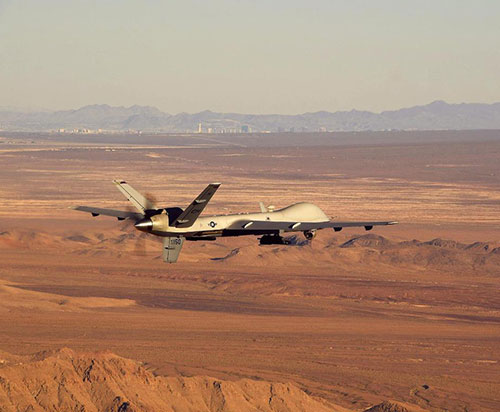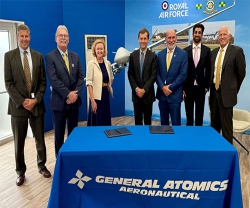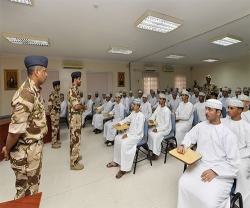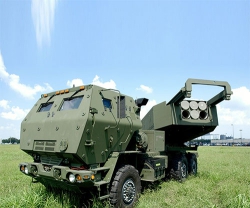General Atomics Aeronautical Systems, Inc. (GA‑ASI) has successfully ground tested its Airborne Laser Communication System (ALCoS) by establishing a link with a satellite in Geo-synchronous Earth Orbit (GEO).
GA-ASI conducted the test with Tesat-Spacecom (TESAT), the leader of space-based laser communication (lasercom), using their GEO Laser Communication Terminal (LCT), the LCT 135. This was the first demonstration of an air-to-space lasercom system with Size, Weight and Power (SWAP) that is compatible with a Medium-altitude, Long-endurance (MALE) Remotely Piloted Aircraft (RPA).
GA-ASI tested the ALCoS from an optical observatory located on Tenerife in the Canary Islands and closed link with TESAT’s LCT 135 terminal onboard the GEO satellite Alphasat. The test successfully demonstrated acquisition and tracking, and sufficient power to close the link with the LCT 135. GA-ASI is completing the development of the flight system for use on a GA-ASI-produced MQ-9 RPA.
“This test was a critical step towards enabling our aircraft with a high-bandwidth communication system that cannot be jammed or detected by an adversary. ALCoS allows a new generation of high-performance sensors by breaking the data bottleneck of current RF SATCOM technology,” said Linden Blue, CEO, GA-ASI.
ALCoS is the result of a five-year, GA-ASI-funded effort to deliver Low Probability of Intercept (LPI), Low Probability of Detect (LPD) communications link to the MQ-9. With 300 times the data carrying capacity of conventional RF SATCOM systems, ALCOS will be able to operate as a gateway to the Joint Aerial Network for forward-deployed forces.
The system has the capability to work in two optical wavelengths, 1064nm and 1550nm. TESAT brings more than 12 years of experience with deployed lasercom systems for space. TESAT’s LCT 135 terminals are currently in use on seven satellites in orbit. These LCTs make over 60 satellite-to-satellite links over a distance of 45,000 km per day and have logged over 30,000 links total. TESAT has proven the commercial viability of laser satellite communications.
General Atomics Aeronautical Systems, Inc. (GA-ASI), an affiliate of General Atomics, is a leading designer and manufacturer of proven, reliable Remotely Piloted Aircraft (RPA) systems, radars, and electro-optic and related mission systems, including the Predator® RPA series and the Lynx® Multi-mode Radar.
With more than six million flight hours, GA-ASI provides long-endurance, mission-capable aircraft with integrated sensor and data link systems required to deliver persistent flight that enables situational awareness and rapid strike.
The company also produces a variety of ground control stations and sensor control/image analysis software, offers pilot training and support services, and develops meta-material antennas.






















